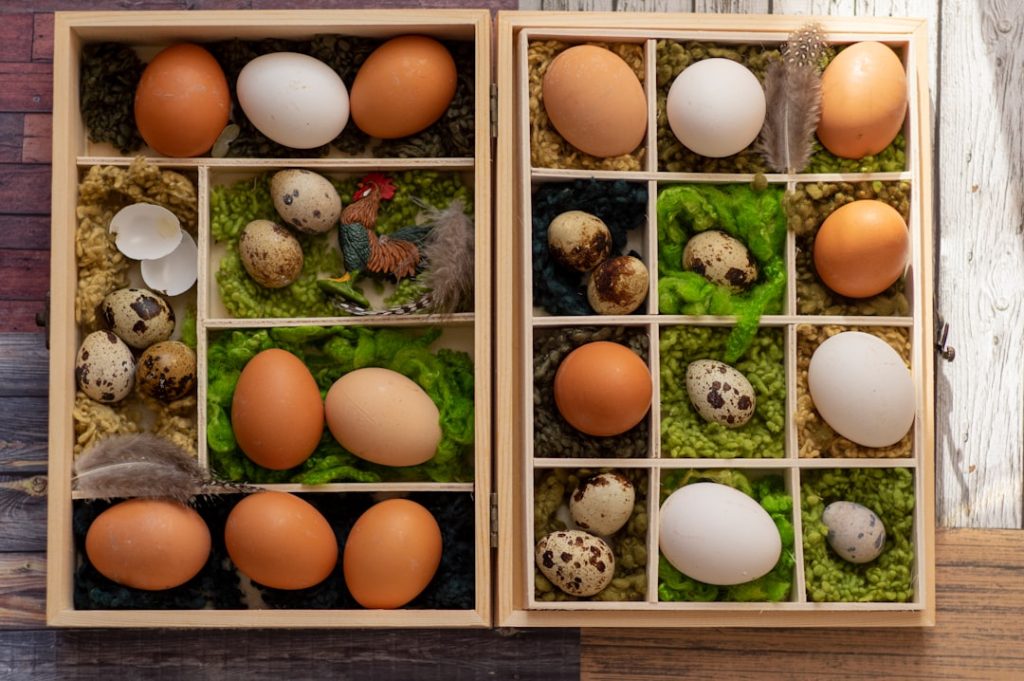Raising chickens can be a rewarding and enjoyable experience, but it’s important to prioritize their safety and well-being. Understanding the basics of chicken safety is crucial for ensuring that your flock remains healthy and happy. One of the most important aspects of chicken safety is providing a clean and comfortable living environment.
This includes keeping their coop and run free from hazards such as sharp objects, toxic plants, and other potential dangers. Additionally, it’s essential to maintain proper hygiene by regularly cleaning and disinfecting the coop to prevent the spread of diseases. Another key aspect of chicken safety is ensuring that they have access to fresh air and natural light.
Proper ventilation is crucial for preventing respiratory issues and maintaining good air quality within the coop. Natural light is also important for regulating their internal clocks and promoting overall well-being. Furthermore, it’s important to handle chickens with care and gentleness to avoid causing them unnecessary stress or injury.
Raising chickens also involves understanding the importance of biosecurity measures to prevent the spread of diseases. This includes limiting exposure to outside birds, quarantining new additions to the flock, and practicing good hygiene when handling chickens. By understanding and implementing these basic principles of chicken safety, you can create a safe and healthy environment for your flock to thrive.
Table of Contents
Key Takeaways
- Understanding the basics of chicken safety is crucial for keeping your flock healthy and happy.
- Creating a safe and secure coop is essential to protect chickens from predators and the elements.
- Providing proper nutrition and hydration is key to maintaining the health and well-being of your chickens.
- Protecting against predators is important for keeping your chickens safe from harm.
- Monitoring and maintaining chicken health is necessary for early detection and prevention of illnesses.
- Implementing biosecurity measures can help prevent the spread of diseases among your flock.
- Ensuring safe handling and care practices is important for the overall well-being of your chickens.
Creating a Safe and Secure Coop
Designing a Secure Coop
When designing or selecting a coop, it’s essential to prioritize durability and security. The coop should be constructed with sturdy materials and feature secure latches and locks to prevent unauthorized access. This will help protect your chickens from potential threats such as predators and harsh weather conditions.
Providing a Comfortable and Safe Space
In addition to security, the coop should also provide adequate space for the chickens to roost, nest, and move around comfortably. The coop should be well-insulated to maintain a comfortable temperature year-round and provide adequate ventilation to prevent moisture buildup. Furthermore, it’s essential to consider the layout of the coop to minimize potential hazards such as sharp edges or corners.
Maintaining a Safe and Secure Environment
Regular inspections of the coop are crucial to identify any signs of wear and tear and make necessary repairs or upgrades to maintain its safety and security. Additionally, providing a predator-proof run for the chickens to safely roam outdoors is vital. This includes installing sturdy fencing with buried wire mesh to prevent digging predators from gaining access and securing the perimeter of the run with a roof or netting to prevent aerial predators from attacking the chickens.
Providing Proper Nutrition and Hydration
Providing proper nutrition and hydration is essential for maintaining the health and well-being of your chickens. A balanced diet is crucial for supporting their growth, egg production, and overall vitality. This includes offering a high-quality commercial feed that is specifically formulated for chickens, as well as supplementing their diet with fresh fruits, vegetables, and grains.
It’s important to provide access to clean water at all times to prevent dehydration and support proper digestion. In addition to a nutritious diet, it’s important to monitor the chickens’ feeding habits and adjust their diet as needed based on their age, breed, and activity level. For example, growing chicks may require a higher protein content in their feed, while laying hens may benefit from calcium supplements to support eggshell production.
It’s also important to avoid feeding chickens any toxic or harmful substances, such as moldy feed or certain plants that can be toxic to poultry. Furthermore, providing proper nutrition also involves managing their access to food to prevent overeating or food aggression within the flock. This includes offering multiple feeding stations to minimize competition and ensuring that all chickens have equal access to food and water.
By prioritizing proper nutrition and hydration, you can support the overall health and vitality of your flock.
Protecting Against Predators
Protecting chickens against predators is a crucial aspect of ensuring their safety and well-being. Predators such as foxes, raccoons, hawks, and snakes pose a significant threat to chickens, so it’s important to implement effective measures to deter them from targeting your flock. One of the most effective ways to protect against predators is by securing the coop and run with sturdy fencing that is buried underground to prevent digging predators from gaining access.
Additionally, it’s important to install hardware cloth or wire mesh around the perimeter of the coop to prevent predators from breaking in. In addition to securing the physical structure of the coop, it’s important to implement deterrents such as motion-activated lights or sound devices to scare off potential predators. It’s also important to regularly inspect the coop and run for any signs of damage or potential entry points for predators, and make necessary repairs or upgrades as needed.
Furthermore, it’s essential to supervise free-ranging chickens during the day and provide a secure shelter for them at night to protect against nocturnal predators. Another effective way to protect against predators is by keeping a vigilant eye on your surroundings and being proactive in addressing potential threats. This includes removing any potential attractants such as food scraps or garbage that may draw in predators, as well as keeping vegetation trimmed back to minimize hiding spots for potential threats.
By implementing these protective measures, you can help safeguard your flock against potential predators.
Monitoring and Maintaining Chicken Health
Monitoring and maintaining chicken health is essential for identifying and addressing any potential issues before they escalate. Regular health checks are crucial for observing any changes in behavior, appearance, or egg production that may indicate an underlying health concern. This includes monitoring their appetite, activity level, respiratory function, and overall demeanor on a daily basis.
In addition to regular observations, it’s important to conduct routine health checks that involve physically examining each chicken for any signs of injury, illness, or parasites. This includes checking their eyes, comb, wattles, feet, and vent for any abnormalities or signs of distress. It’s also important to monitor their droppings for any changes in color, consistency, or odor that may indicate digestive issues or internal parasites.
Furthermore, maintaining chicken health involves providing regular preventative care such as vaccinations, deworming, and parasite control. It’s important to consult with a veterinarian or poultry health expert to develop a comprehensive health care plan that addresses the specific needs of your flock based on their age, breed, and environmental factors. By prioritizing regular health monitoring and preventative care, you can help maintain the overall well-being of your chickens.
Implementing Biosecurity Measures

Limiting Exposure and Practicing Good Hygiene
This includes limiting exposure to outside birds by quarantining new additions to the flock for a period of time before integrating them with the existing chickens. It’s also important to practice good hygiene when handling chickens by washing hands thoroughly before and after interacting with them.
Cleaning and Disinfecting the Coop and Run
In addition to limiting exposure, it’s important to regularly clean and disinfect the coop and run to prevent the buildup of pathogens that can lead to disease outbreaks. This includes removing soiled bedding, sanitizing surfaces with poultry-safe disinfectants, and regularly rotating litter in the coop. It’s also important to practice strict biosecurity measures when introducing new equipment or supplies into the coop to prevent potential contamination.
Monitoring Health and Addressing Illness
Furthermore, it’s important to monitor the health of your flock closely and be proactive in addressing any signs of illness or disease promptly. This includes isolating sick or injured chickens from the rest of the flock and seeking veterinary care when needed. By implementing these biosecurity measures, you can help protect your flock from potential disease threats and maintain a healthy environment for them to thrive.
Ensuring Safe Handling and Care Practices
Ensuring safe handling and care practices is essential for minimizing stress and injury for both chickens and their caretakers. When handling chickens, it’s important to approach them calmly and gently to avoid causing unnecessary stress or fear. This includes using slow movements and speaking softly to reassure them during handling or transport.
In addition to safe handling practices, it’s important to provide proper care for any injuries or illnesses that may occur within the flock. This includes having a well-stocked first aid kit on hand that includes supplies such as bandages, antiseptic ointment, and wound care products. It’s also important to be prepared for emergencies by having a plan in place for evacuating chickens in the event of a natural disaster or other unforeseen circumstances.
Furthermore, it’s important to prioritize ongoing education and training for caretakers on safe handling practices and proper care techniques for chickens. This includes staying informed about best practices for poultry care through resources such as workshops, online courses, or veterinary guidance. By prioritizing safe handling and care practices, you can help ensure the well-being of your flock while minimizing potential risks for both chickens and caretakers.
In conclusion, prioritizing chicken safety involves understanding the basics of providing a clean living environment, creating a secure coop, providing proper nutrition and hydration, protecting against predators, monitoring and maintaining chicken health, implementing biosecurity measures, and ensuring safe handling and care practices. By incorporating these principles into your poultry management practices, you can create a safe and healthy environment for your flock to thrive while minimizing potential risks for both chickens and caretakers alike.
If you’re interested in keeping chickens safe, you may also want to learn about how long it takes for chicken eggs to hatch naturally. Check out this informative article on how long for chicken eggs to hatch naturally to gain a better understanding of the hatching process and how to ensure the safety and well-being of your chickens during this crucial time.
FAQs
What are some general tips for keeping chickens safe?
Some general tips for keeping chickens safe include providing a secure coop and run, using predator-proof fencing, locking up chickens at night, and keeping an eye out for signs of illness or injury.
How can I protect my chickens from predators?
To protect chickens from predators, it’s important to use predator-proof fencing, secure the coop with locks, and consider using motion-activated lights or alarms to deter predators.
What are some common predators of chickens?
Common predators of chickens include foxes, raccoons, coyotes, dogs, cats, hawks, owls, and snakes.
How can I keep my chickens healthy?
To keep chickens healthy, provide a balanced diet, clean water, regular access to fresh air and sunlight, and keep the coop clean and well-ventilated. Regular health checks and vaccinations can also help prevent illness.
What should I do if my chickens become ill or injured?
If your chickens become ill or injured, it’s important to isolate them from the rest of the flock, provide appropriate medical care, and consult with a veterinarian if necessary. Regular health checks can help catch any issues early.
Meet Walter, the feathered-friend fanatic of Florida! Nestled in the sunshine state, Walter struts through life with his feathered companions, clucking his way to happiness. With a coop that’s fancier than a five-star hotel, he’s the Don Juan of the chicken world. When he’s not teaching his hens to do the cha-cha, you’ll find him in a heated debate with his prized rooster, Sir Clucks-a-Lot. Walter’s poultry passion is no yolk; he’s the sunny-side-up guy you never knew you needed in your flock of friends!







